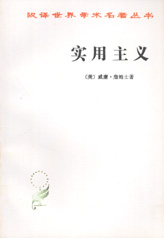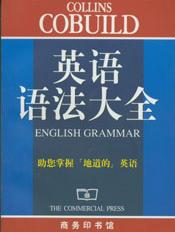牛津实用英语语法-第52部分
按键盘上方向键 ← 或 → 可快速上下翻页,按键盘上的 Enter 键可回到本书目录页,按键盘上方向键 ↑ 可回到本页顶部!
————未阅读完?加入书签已便下次继续阅读!
要是他肯开得慢一些就好了!相当于:
We are sorry that he isn’t willing to drive more slowly.
他不愿意开得慢一些,我们感到遗憾。
if only+would也可以表示没有多大希望实现的关于将来的愿望:
If only(=I/We wish) the rain would stop!
要是雨能停该多好!(我/我们希望雨停,但我们想雨会继续下个不停。)(参见第300节与第301节有关wish部分。)
if only从句如上所述可以单独使用,也可以作为一个完整的条件句的组成部分。
?
'Amber demo'
229 间接引语中的条件句
?
A 条件句类型1的基本形式在这里时态的变化遵循通常的规律:
He said,‘If I catch the plane I’ll be home by five.’
他说:“我如果能赶上这班飞机,5点钟以前就可以到家了。”相当于:
He said that if he caught the plane he would be home by five.
他说他如果能赶上那班飞机,5点钟以前就可以到家了。
条件句类型2的基本形式在这里时态不变:
‘If I had a permit I could get a job,’he said.
他说:“如果我有许可证就能找到工作。”相当于:
He said that if he had a permit he could get a job.
他说如果他有许可证就能找到工作。
条件句类型3的基本形式在这里时态不变:
‘If she had loved Tom,’ he said,‘she wouldn’t have left him.’
他说:“如果她喜欢汤姆,就不会离开他。”相当于:
He said that if she had loved Tom she wouldn’t have left him.
他说如果她喜欢汤姆的话就不会离开他。
B 关于if从句+命令或者要求在间接引语中的例句(参见第320节与第321节):
He said,‘If you have time wash the floor.’
他说:“如果你有时间,擦一擦地板。”
He said,‘If you have time would you wash the floor?’
他说:“如果你有时间,你能擦一擦地板吗?”相当于:
He told/asked me to wash the floor if I had time.
他叫/要我有时间的话擦一擦地板。
He said that if I had time I was to wash the floor.
他说如果我有时间的话就擦一擦地板。
‘If you see Ann ask her to ring me,’he said.
他说:“如果你遇到安,叫她给我打个电话。”相当于:
He said that if I saw Ann I was to ask her to ring him.
他说如果我看到安,告诉她给他打个电话。(这里如用 ask+不定式结构就变得很拗口,也不十分清楚。)
Peter(on phone): If you miss the last bus get a taxi.
彼得(在打电话):如果你们误了末班车,就雇一辆出租汽车。
Peter says that if we miss the last bus we are to get a taxi.
彼得说如果我们误了末班车就雇一辆出租汽车。
(关于if you would…表示要求,参见第284节F。)
C 关于在间接引语中的if从句+劝告的表示法:
‘If you feel ill,’she said,‘why don’t you go to bed?’/‘…you’d bet- ter go to bed.’
她说:“如果你感到不舒服为什么不躺一下?”/…你最好上床休息。
She advised me to go to bed if I felt ill.
她劝我,如果感到不舒服了就上床休息。
She said that if I felt ill I’d better/I should go to bed.
她说如果我感到不舒服了我最好/应当上床休息。
‘If I were you I’d stop taking pills,’she said.
她说:“如果我是你的话,我就停止吃药。”相当于:
She advised me to stop taking pills.
她劝我停止吃药。
D if从句+疑问句结构在间接引语中通常把if从句置于句末:
‘If the baby is a girl what will they call her?’ he wondered.
他心里想:“如果生的是个女孩,他们会给她取个什么名字?”相当于:
He wondered what they would call the baby if it was a girl.
他心里想,如果生的是个女孩,他们会给她取个什么名字。
‘ If the door is locked what shall I do?’ she asked.
她问道:“如果门锁了我该怎么办?”相当于:
She asked what she would do if the door was locked.
她问如果门锁了她该怎么办。
?
'Amber demo'
第二十二章
will/would,shall/
should的其他用法
?
关于表示命令的 will/shall参见第282节。
关于表示请求的 will/would参见第284节。
关于表示邀请的 will/would参见第286节。
关于 would/should与like,prefer,wish等连用参见第二十九章。
?
'Amber demo'
230 用will,would表示习惯
?
A 现在的习惯性动作通常用一般现在时表示,但如果想要强调施动者的特征而非动作本身,则可用 will+不带to的不定式(即动词原形)结构。这主要用于一般陈述句:
An Englishman will usually show you the way in the street.
英国人通常是会在街上给你指路的。(英国人这样表现是正常的。)这并非will的一种很重要的用法,它的过去时would的用处要广泛得多。我们描述过去例行的活动时,可以用would代替used to:
On Sundays he used to/would get up early and go fishing. He used to/ would spend the whole day by the river and in the evening used to/would e home with marvellous stories of the fish he had nearly caught.
星期天他总是早起钓鱼去。他整天都在河边钓鱼,晚间才回到家里,总要讲一些奇妙的故事,说他差一点儿就钓到多大的鱼。
但要注意 used to表示已经不再有的习惯时,不能用 would来代替。(参见第162节。)
这样用的will和would可以有缩略形式。
B will还可以表示执意坚持,通常是习惯性的:
If you′will keep your watch half an hour slow it is hardly surprising that you are late for your appointments.
如果你一定要让你的表慢半个小时,你约会时迟到就不足为怪了。
在有关过去的事中使用would:
We all tried to stop him smoking in bed but he′would do it.
我们都劝他不要躺在床上吸烟,可他老是要这样做。
这里will和would不能缩略,而且要加强重读。
C would可表示某人的一种典型的动作,一般这种动作使说话人讨厌:
—Bill objects/objected.
—He′would!/He′would object!
—比尔反对。
—他总是反对!
?
'Amber demo'
231 should/would think+that从句或so/not
?
(关于so/not用于代替从句参见第347节。)
A —Will it be expensive?
—I should/would think so./I should think it would.I shouldn’t think it would./I shouldn’t/wouldn’t think so./I should/would think not.
—这个会很贵吗?
—我想是的。/我想不。
回答这一类问题时,回答人暗示他并不确实知道,只是凭印象而言。 I should/would think 表示的语气没有I think那么肯定。
should/would think引导一个附加评论时,一般不能用so/ not。这时必须使用that从句:
—He’s an astrologer, looking for work.
—I shouldn’t/wouldn’t think that he’d find it easy to get work.
—他是一个星相家,正在找工作。
—我想他大概不会感到找到一份工作是容易的。
B 如果评论发生在过去的动作,可以用should/would have thought:
—He actually got a job as an astrologer.
—I shouldn’t/wouldn’t have thought that it was possibe to do that.
—他真的以星相家的身份找了一份工作。
—我本来认为那是不可能的。
C should/would have expected+不定式结构/that从句也是可行的。有时非人称代词you可代替I:
—She has emigrated.
—Has she? You’d/I’d have expected her to stay in this country.
—她移居国外了。
—是吗?人们/我还以为她会留在国内的。
?
'Amber demo'
232 would 表示过去的意图
?
如已经提到的那样,如果will用来表示一般将来时,would 就是will的过去式:
He knows he will be late.
他知道他会迟到的。
He knew he would be late.
他当时知道他会迟到。
would也同样可视为表示意图的will的过去式(参见第201节):
I said,‘ I will help him.’
我说:“我要帮助他。”相当于:
I said that I would help him.
我说过我要帮助他。
He said,‘I won’t lend you a penny.’
他说:“我一便士都不愿借给你。”相当于:
He said that he wouldn’t lend me a penny.
他说过他一便士都不愿借给我。
但要注意,表示将来或意图的would,像在上述例句中那样,只限用于从句中,而wouldn’t表示否定的意图时则可以单独使用:
He won’t help me today.
他今天不愿帮助我。(他拒绝帮助。)
He wouldn’t help me yesterday.
他昨天不愿帮助我。(他拒绝帮助。)
与此相反 would不能这样用。因此如要把 I will help him to- day变为过去时,就必须用另一个动词来代替will:
I wanted/intended/offered to help him yesterday.
我昨天要/想/主动提出帮助他。
?
'Amber demo'
233 shall I/we?用于请求给予指示或表示
意见、主动提供帮助、提出建议等
?
请求给予指示:
How shall I cook it?
我该怎么煮这东西?
Where shall we put this?
我们该把这东西放在哪里?
如果这种请求只是请别人对某事提出意见,shall或should均可用:
Which one shall I buy?/ Which one should I buy?
我应该买哪一个?
主动提供帮助:
Shall I wait for you?
我要不要等你?
Shall I help you to pack?
要不要我来帮你打点行李?
主动提供建议:
Shall we meet at the theatre?
我们是否在剧院见面?
Let’s meet at the theatre, shall we?
我们在剧院见面,好吗?
(参见第318节关于 shall I/we?在间接引语中的用法部分。)
?
'Amber demo'
234 shall用于第二、第三人称
?
shall A 表示说话者想要完成某一动作或要别人来完成该动作的意图;B表示命令。这两种用法显得老式,语气比较正式,在现代英语口语中一般已不使用。
A shall 用于表示说话者意图的例子:
You shall have a sweet.
你会得到/得到一块糖。相当于:
I’ll give you a sweet./I’ll see that you get a sweet.
我要给你一块糖。/我负责让你得到一块糖。
He shan’t e here.
他不能来。相当于:
I won’






